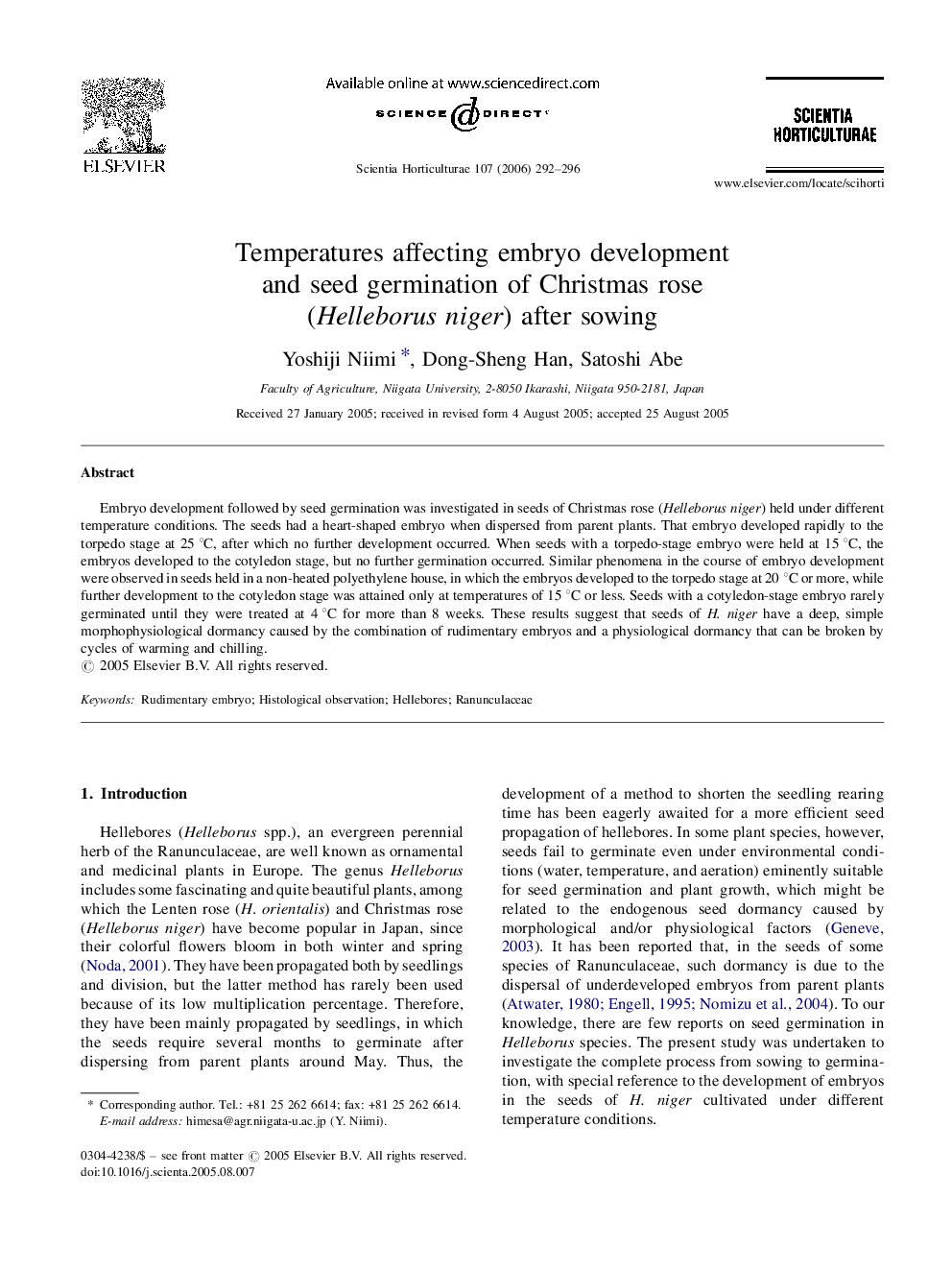| Article ID | Journal | Published Year | Pages | File Type |
|---|---|---|---|---|
| 4570085 | Scientia Horticulturae | 2006 | 5 Pages |
Embryo development followed by seed germination was investigated in seeds of Christmas rose (Helleborus niger) held under different temperature conditions. The seeds had a heart-shaped embryo when dispersed from parent plants. That embryo developed rapidly to the torpedo stage at 25 °C, after which no further development occurred. When seeds with a torpedo-stage embryo were held at 15 °C, the embryos developed to the cotyledon stage, but no further germination occurred. Similar phenomena in the course of embryo development were observed in seeds held in a non-heated polyethylene house, in which the embryos developed to the torpedo stage at 20 °C or more, while further development to the cotyledon stage was attained only at temperatures of 15 °C or less. Seeds with a cotyledon-stage embryo rarely germinated until they were treated at 4 °C for more than 8 weeks. These results suggest that seeds of H. niger have a deep, simple morphophysiological dormancy caused by the combination of rudimentary embryos and a physiological dormancy that can be broken by cycles of warming and chilling.
